How to Prepare Your Home for a Bushfire
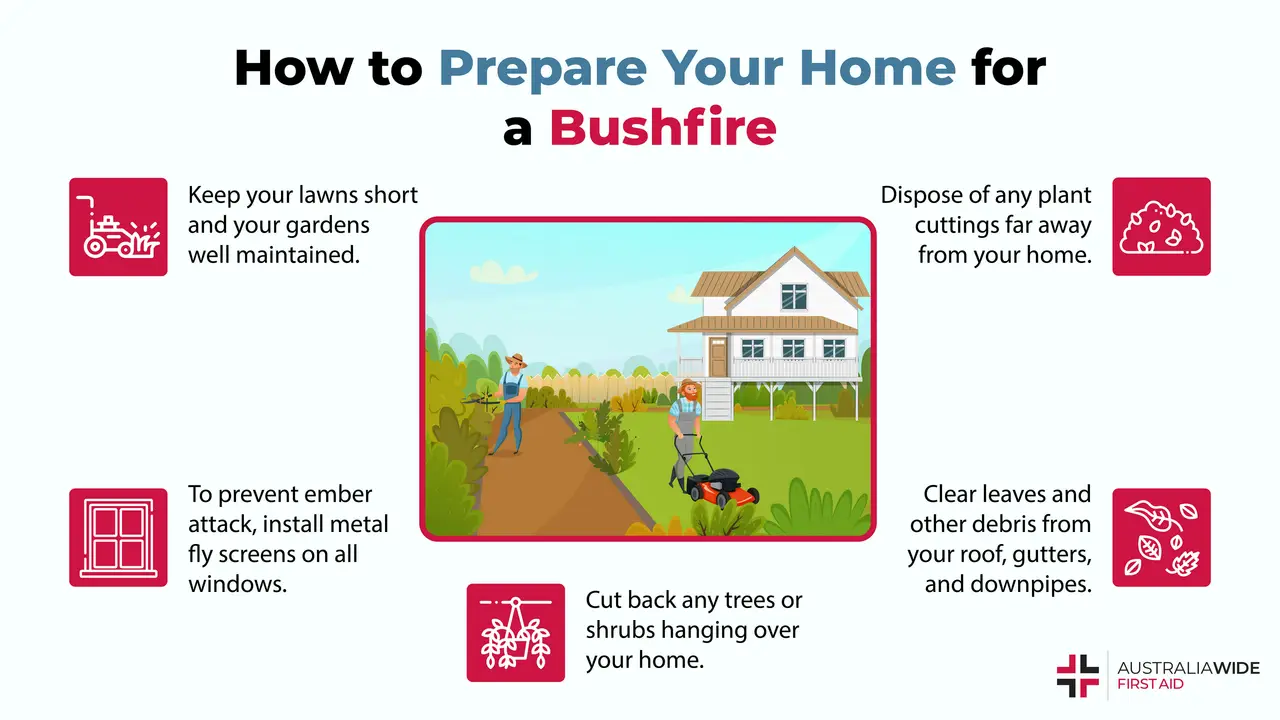

Regardless of whether you plan to leave early or to stay and defend your home in the event of a bushfire, it is important that your home is prepared against bushfire threats.
Preparing your home against bushfire threats not only helps protect your own safety, it helps protect the safety of your family, your neighbours, and the responding firefighters. If you plan on leaving early, preparing your home in advance will give it a greater chance of surviving flames and floating embers. Meanwhile, if you plan on staying and defending your home, preparing your home in advance will make your job less burdensome.
Taking proactive measures to prepare your home for a bushfire will also lessen the risk of your neighbours' homes catching on fire, as fires can quickly jump from one house to the next if allowed to burn. In some cases, a fire can threaten suddenly and impede your departure. In these cases, you may need to take shelter in your home, and it will lend greater protection if it is adequately prepared.
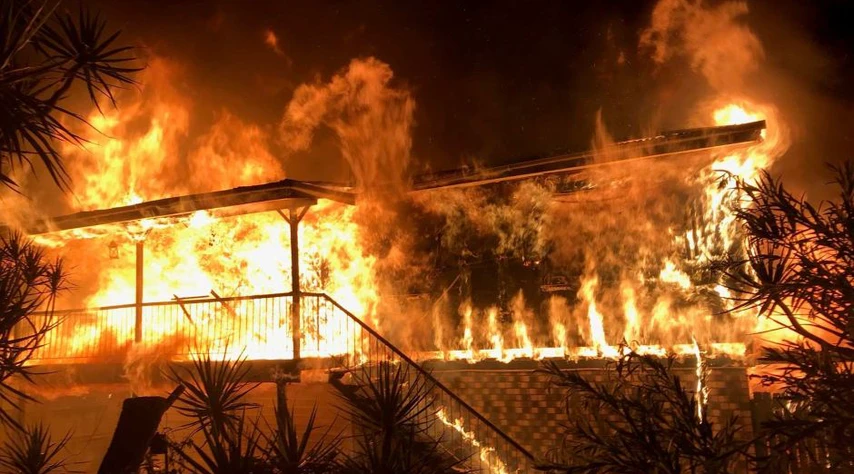
The above information was sourced from the NSW RFS Bush Fire Survival Plan.
Want to learn more about how to manage bushfires from a first aid perspective, head to our Resource Library now.
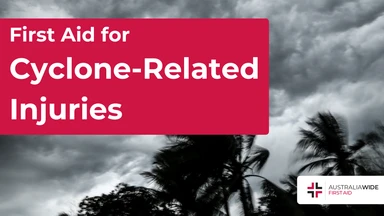
March 3, 2025
Injuries during cyclones often result from flying debris, collapsing structures, and flooding. Knowing basic first aid can help prevent further harm while waiting for emergency services.
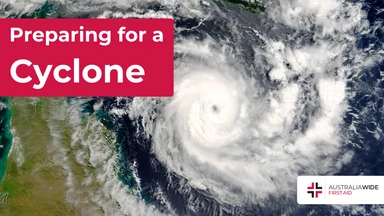
March 3, 2025
If a cyclone makes landfall, meaning that it crosses from the sea onto land while still being strong enough to be classified as a cyclone, the damage it can cause can be disastrous. Preparation is key to minimising the risks associated with cyclones. The damaging weather can last for days, exacerbating risks as hazards intensify.
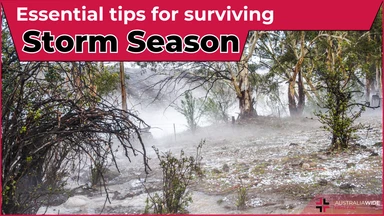
November 1, 2024
Severe storms are a common and dangerous occurrence in Australia, particularly in regions like Queensland. These storms can bring large hail, damaging winds, heavy rain, and occasionally tornadoes, all of which can put both people and property at risk. Preparing for and responding to severe storms effectively is key to ensuring safety.